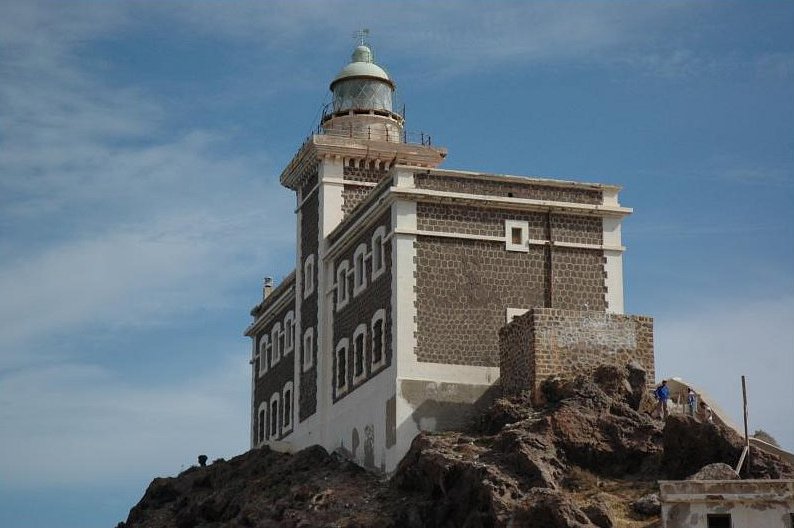Cape Three Forks on:
[Wikipedia]
[Google]
[Amazon]
Cape Three Forks, Cape des Trois Fourches, or Cape Tres Forcas is a headland on the Mediterranean coast of northeastern Morocco.
 In
In
 A
A
Cape Tres Forcas on Wikimapia
Three Forks Geography of Oriental (Morocco) Ramsar sites in Morocco {{OrientalMA-geo-stub
Geography
The cape is a large mountainouspromontory
A promontory is a raised mass of land that projects into a lowland or a body of water (in which case it is a peninsula). Most promontories either are formed from a hard ridge of rock that has resisted the erosive forces that have removed the so ...
of North Africa into the Mediterranean Sea. For centuries, this cape has provided both a nautical landmark and a maritime hazard for ships in the Alboran Sea
The Alboran Sea (from Arabic , ''al-Baḥrān'') is the westernmost portion of the Mediterranean Sea, lying between the Iberian Peninsula and the north of Africa (Spain on the north and Morocco and Algeria on the south). The Strait of Gibraltar, w ...
. The Spanish exclave of Melilla
Melilla ( , ; ; rif, Mřič ; ar, مليلية ) is an autonomous city of Spain located in north Africa. It lies on the eastern side of the Cape Three Forks, bordering Morocco and facing the Mediterranean Sea. It has an area of . It was par ...
surrounds a smaller cape on the eastern side of the peninsula.
Names
 In
In antiquity
Antiquity or Antiquities may refer to:
Historical objects or periods Artifacts
*Antiquities, objects or artifacts surviving from ancient cultures
Eras
Any period before the European Middle Ages (5th to 15th centuries) but still within the histo ...
, the cape was known to the Phoenicians and Carthaginians as Rusadir ( xpu, 𐤓𐤔𐤀𐤃𐤓 , ), giving its name to a nearby port (now Melilla
Melilla ( , ; ; rif, Mřič ; ar, مليلية ) is an autonomous city of Spain located in north Africa. It lies on the eastern side of the Cape Three Forks, bordering Morocco and facing the Mediterranean Sea. It has an area of . It was par ...
). The name meant "Powerful" or "High Cape",. but can also be understood as "Cape of the Powerful One", in reference to Baal, Tanit, and other important Punic god. It was known to the Romans as ( la, Metagonites Promontorium)..
Cape Three Forks is known in Spanish as , in French
French (french: français(e), link=no) may refer to:
* Something of, from, or related to France
** French language, which originated in France, and its various dialects and accents
** French people, a nation and ethnic group identified with Franc ...
as , and in Arabic as , all meaning "Cape of the Three Forks".
It is also known in Arabic as ''Ras Uarc''.
History
On 26 August 1923 the ran aground and eventually wrecked on the cape.Lighthouse
 A
A lighthouse
A lighthouse is a tower, building, or other type of physical structure designed to emit light from a system of lamps and lenses and to serve as a beacon for navigational aid, for maritime pilots at sea or on inland waterways.
Lighthouses mar ...
is located in the north end of the cape. It is a gray tower on white two-story dwelling.
Maraboutism
At least 11 locations in the Cape Three Forks have been identified as places of pious reflection, either small hermitages, bushes or trees, five of them featuring the tomb of the marabout.Ecology
Cape Three Forks is a Ramsar designated site with no. 1473. It hosts different species, some of them threatened, such as themonk seal
Monk seals are earless seals of the tribe Monachini. They are the only earless seals found in tropical climates. The two genera of monk seals, ''Monachus'' and ''Neomonachus'', comprise three species: the Mediterranean monk seal, ''Monachus mona ...
, two species of limpet
Limpets are a group of aquatic snails that exhibit a conical shell shape (patelliform) and a strong, muscular foot. Limpets are members of the class Gastropoda, but are polyphyletic, meaning the various groups called "limpets" descended indep ...
s ('' Patella ferruginea'' and ''Patella nigra
''Cymbula safiana'', common name the saffian limpet, is a species of sea snail, a true limpet, a marine gastropod mollusk in the family Patellidae, one of the families of true limpets.Bouchet, P. (2014). Cymbula safiana (Lamarck, 1819). Accesse ...
''), the loggerhead turtle, the fin whale and two species of dolphin ('' Tursiops truncatus'' and '' Delphinus delphis''). The main activities taking place in the area are fishing and tourism.
References
Citations
Bibliography
* . * . * . * . * .External links
Cape Tres Forcas on Wikimapia
Three Forks Geography of Oriental (Morocco) Ramsar sites in Morocco {{OrientalMA-geo-stub